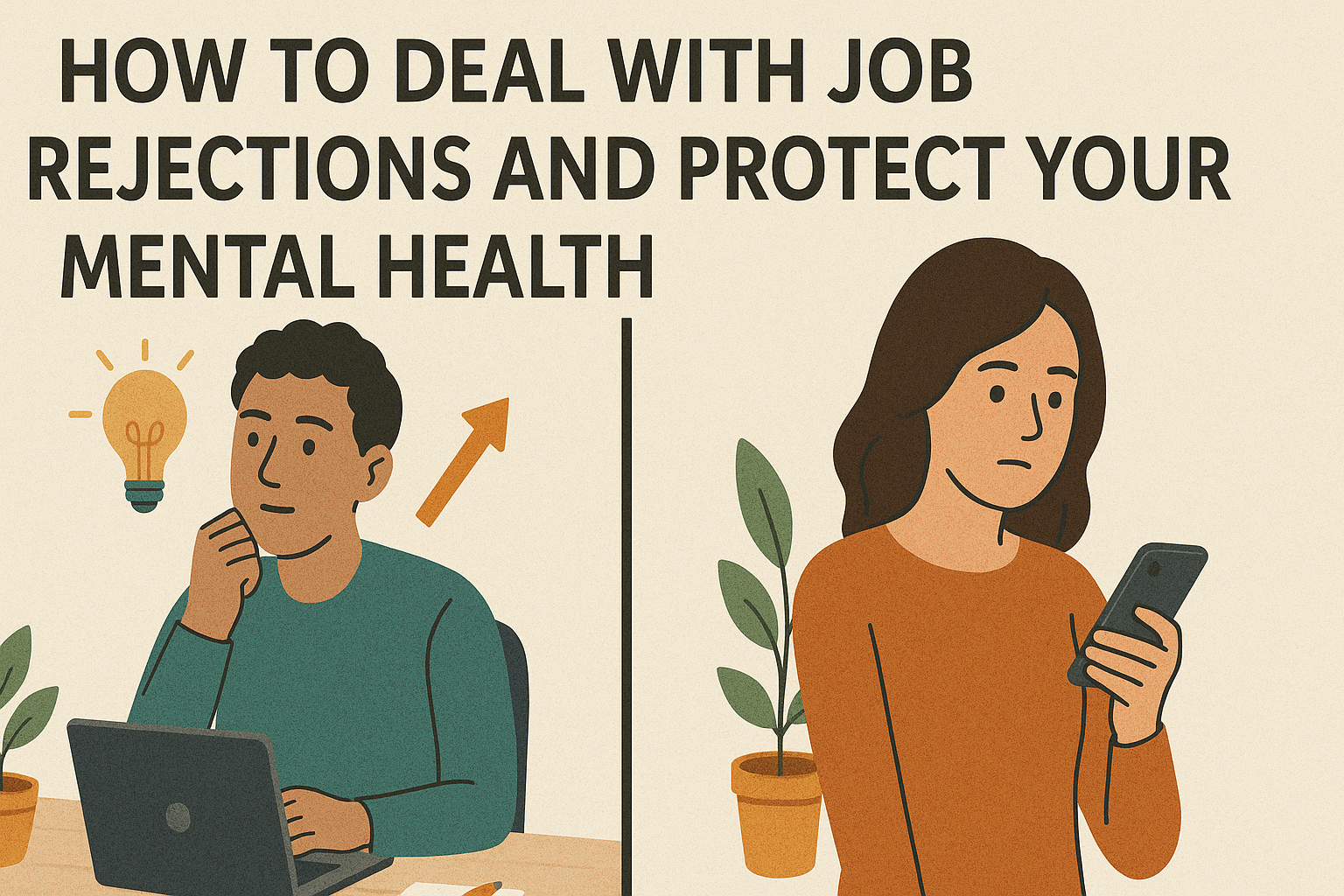Searching for a job can feel like a full-time job in itself—and often, it comes with rejection, silence, and long waiting periods. These challenges can take a toll not only on your career confidence but also on your mental health. The good news: rejection is a natural part of the job search process, and with the right strategies, you can protect your well-being, maintain motivation, and turn setbacks into opportunities.
Coping with Job Search Stress
Job hunting brings unique pressures—financial uncertainty, constant comparison to others, and the emotional rollercoaster of interviews. To manage this stress:
- Set realistic expectations: On average, it can take weeks or even months to secure the right role. Remind yourself that persistence pays off.
- Build a routine: Treat job searching like structured work hours, but avoid letting it consume your entire day. Balance it with hobbies, exercise, and social activities
- Focus on what you can control: Instead of fixating on outcomes, track daily wins like applications submitted, networking calls made, or new skills learned.
What to Do If You’re Not Hearing Back
Few things are more discouraging than sending dozens of applications and hearing nothing. Silence doesn’t always mean rejection—sometimes it’s about timing, algorithms, or company circumstances. Here’s how to respond:
- Review your materials: Tailor your resume and cover letter for each role to ensure they align with the job description.
- Leverage networking: Many jobs are filled through referrals. Reach out to former colleagues, alumni, or industry connections for advice and introductions.
- Follow up: If you’ve applied or interviewed and haven’t heard back, a polite follow-up email after a week or two shows initiative without being pushy.
- Reframe rejection as redirection: Not being selected often means the role wasn’t the best fit. Keep searching for the one that is.
Managing Employment Gaps and Career Transitions
Whether you’ve been unemployed for months or are considering a new direction, gaps and transitions can create anxiety. Employers understand these challenges more than you may realize.
- Be honest but strategic: A simple explanation like “I took time to upskill” or “I used the transition to reassess my career goals” keeps things professional.
- Showcase growth: Highlight any freelance work, certifications, volunteer roles, or side projects you pursued during the gap.
- Focus on the future: Frame your narrative around where you’re headed, not where you’ve been. Employers value resilience and adaptability.
Key Takeaways
- Rejection and silence are common in the job search—don’t let them define your self-worth.
- Build a balanced routine, focus on controllable actions, and reframe setbacks as redirection.
- Employment gaps and transitions can be opportunities to highlight growth, resilience, and new skills.
- Protecting your mental health during a job search is just as important as landing the right position.
FAQ
How do I stay motivated after repeated rejections?
Remind yourself that rejection is not a reflection of your worth. Break the process into manageable steps, celebrate small wins, and lean on your support system.
Should I apply for jobs if I have an employment gap?
Absolutely. Gaps are common and can be explained with honesty and focus on what you gained during that time.
What if I feel overwhelmed by the job search?
Take breaks, set boundaries, and consider talking to a career coach or mental health professional if stress becomes unmanageable.

